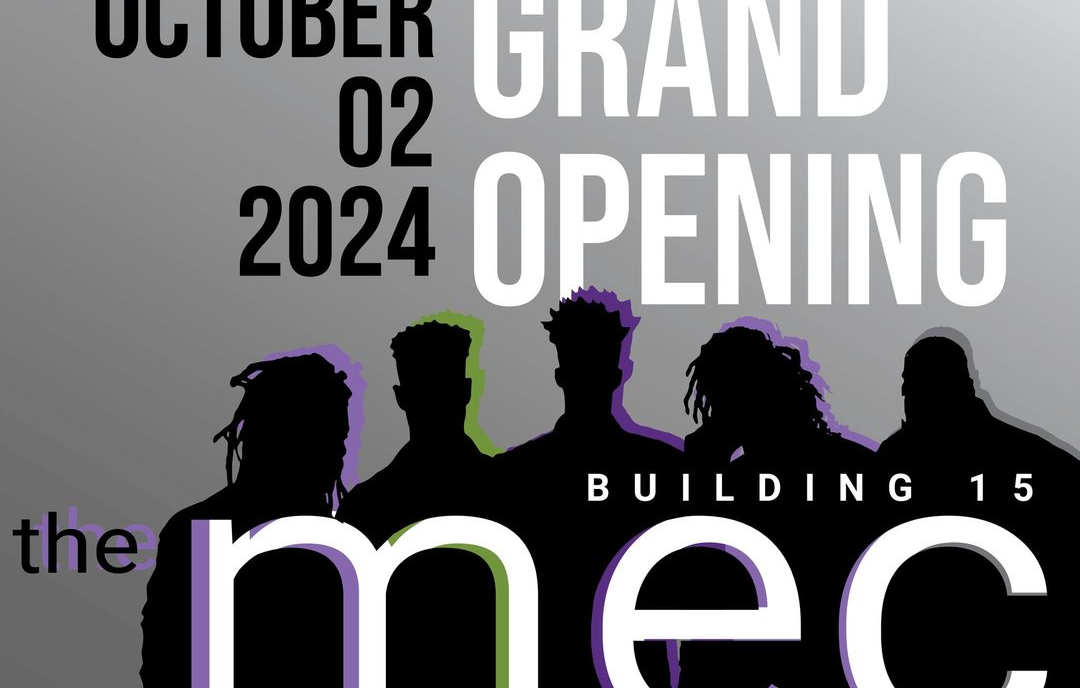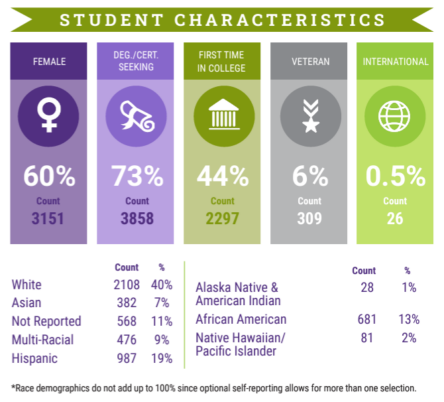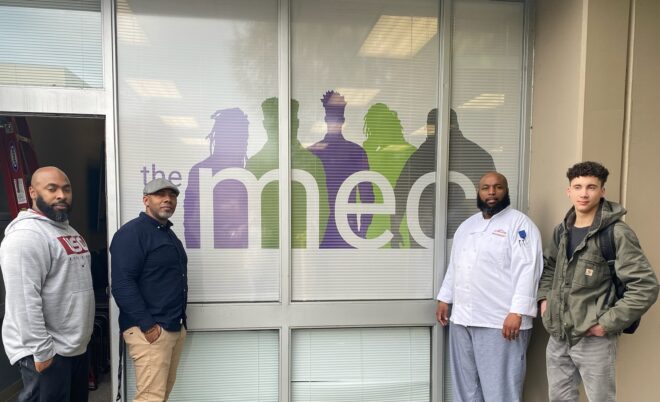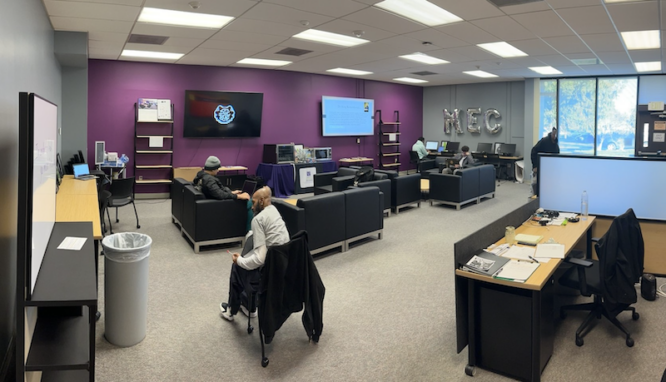
Male Engagement Center Grand Opening is Oct 2
The MEC will celebrate its official grand opening Oct. 2, 2024.
By Jean Borst
Black male college students often struggle to find a sense of belonging – both in the classroom and among the broader college community. Their experiences can be particularly challenging at a predominantly white institution like Clover Park Technical College.

The Male Engagement Center (MEC), which opened on CPTC’s Lakewood campus nearly a year ago, is a big first step to foster a more inclusive campus culture built on trust and belonging for current and prospective Black-identifying male students.
“The MEC provides the space and place that young Black males need to celebrate their identity and help them find their sense of value and belonging on the campus,” said MEC Manager Jovan McCoy, Manager of Inclusive Excellence & Belonging in CPTC’s Office of Equity, Diversity & Inclusion. “Alongside their peers, they can feel comfortable and better understand how to navigate the college experience, hold themselves accountable, deal with instructors when situations arise or ask for help if they need someone to advocate for them.”
Driven by data
Data gathered by the college since 2021 made clear that many Black male students who attended CPTC believed they didn’t get everything they needed to succeed. They felt their potential for greater earnings was diminished, struggled to finish their studies, and found it uncomfortable to talk with faculty or staff when they had a problem. Some said they wouldn’t send their child to CPTC because it wasn’t a welcoming place and didn’t serve Black males effectively.
Chas Gardener Sr. can relate. When he came to the college to pursue a Culinary and Pastry Arts degree, he found out what it’s like to be the only Black man in a classroom – just like when he was the only Black man in his U.S. Army unit. He’d learned to navigate the landscape in structurally white institutions on his own. When Gardner shared his experiences with McCoy, his feedback helped nurture a seed that would eventually become the MEC. It also set the stage for him to become a coach and mentor for other Black men when the center opened its doors.
[caption id="attachment_6408" align="aligncenter" width="660"] The Male Engagement Center is located in Building 15 on CPTC's Lakewood campus. Pictured from left: HVAC program student Andre Taylor, MEC Manager Jovan McCoy, Culinary and Pastry Arts program graduate Chas Gardner and Welding Technology program student Reece Glasco.[/caption]
The Male Engagement Center is located in Building 15 on CPTC's Lakewood campus. Pictured from left: HVAC program student Andre Taylor, MEC Manager Jovan McCoy, Culinary and Pastry Arts program graduate Chas Gardner and Welding Technology program student Reece Glasco.[/caption]
Promoting success in the classroom and beyond
The concept for the MEC had percolated on campus for some time. A group of faculty, staff and administrators had long advocated for supporting and mentoring Black male students, but a formal program had never been created. When CPTC was one of only 11 colleges in the nation selected to be part of the Racial Equity Leadership Academy, it opened the door for McCoy to take an idea already hatched by CPTC’s Ethnic Student Engagement Committee and create a physical space.
The joint initiative from Achieving the Dream and the University of Southern California Race and Equity Center supports teams of college leaders as they develop transformative racial equity change efforts. For CPTC, the focus wasn’t just to promote Black male student success on campus; it was to improve Black male success and economic mobility that will make multigenerational impacts.
“Many of our Black male students have never had conversations about the trades or what their career options are,” McCoy said. “We help them explore their opportunities and pathways to good-paying jobs.”
Targeted for success
Housed in CPTC’s Learning and Resource Center, the comfortable and culturally engaging MEC offers academic and nonacademic support to help Black male students improve their skills, build trust and belonging, and boost their resolve in the classroom, on campus and beyond.
Services and programs offered through the MEC include:
- Support coaching and peer mentorship that help students navigate and adjust to the college landscape and remove barriers to academic and career success. Through partnerships with every department on campus, coaches/mentors also act as student advocates and, if needed, help students get academic support.
- Programs that help students improve self-awareness and create peer support, including leadership development, networking, and cultural and social events.
- An embedded College 102 class. Already a required class for all new CPTC students to help them make a successful transition to college, the MEC option is designed specifically for Black male students seeking to build relationships and community.
- Dedicated mental health services. A social and mental health professional is available to help Black male students navigate issues such as homelessness, relationship problems and other personal or societal difficulties that may hinder their success. They also serve as a critical resource for students who are reentering society and working to build trust with other students, staff and instructors.
- Summer Launch. Specifically geared to Black male students, the program provides an orientation to the college and its facilities and allows students to immerse themselves in college life before fall quarter begins.
- On-site computers, a reference library, education tools and a quiet place to study.

“This is really a center of Black men trying to help other Black men navigate college,” Gardner said. “We want to make sure that, with our help, Black males know they are supposed to be here – to get an education, a new job or advance a skills set.”
Gardner graduated from CPTC in June, but he continues to mentor and coach Black male students through the MEC and help them build their own sense of community. When they complete their studies at the college, the expectation is that they will come back and do the same for other Black students.
A great first step
Almost from the start, people took note of CPTC’s bold move to create an intentional space that celebrates and builds community for its Black male students. At the annual Pacific Black Male Academic Achievement Conference in March of last year, the MEC received the coveted Excellence Award for supporting Black male success at CPTC. McCoy, Gardner and CPTC President Dr. Joyce Loveday were also invited to give a presentation about the center at the 2024 Achieving the Dream conference in Orlando, Florida.
While McCoy acknowledges that the recognition of the MEC’s foundational success is gratifying, he’s quick to stress that there’s much more to do. Going forward, work will continue to develop and enhance programs and services in the most intentional way possible, with a focus on leadership development, industry partnerships and networking.
“We must continue to build based on what our students tell us they need, not what we think they should have,” he said. “We’re discovering that everyone has a unique experience and there are a lot of different dynamics at play.”
Setting the standard
The MEC is the only center in Washington state with a singular focus advancing the economic mobility of Black male students. As other higher education institutions look to create a similar space, McCoy has some advice.
“Our data and research told us what we needed to do,” he said. “For others who want to create the same model, find out what your students need. Don’t do this for the sake of doing it. This work needs to be intentional and student informed.”
Experience the MEC for yourself at the grand opening celebration Oct. 2. The event is open to the public and will feature food, music and – most important – inspirational personal stories from CPTC students who have benefited from the center’s programs and resources.
For more info, call 253-589-5689 or email diversity@cptc.edu.